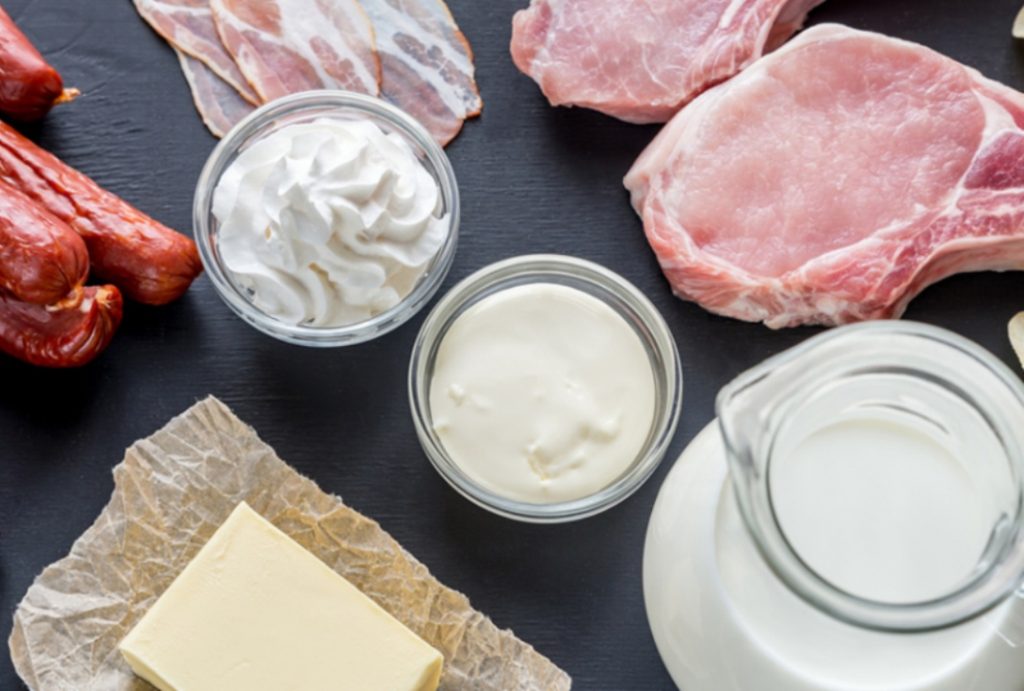For thousands of years ago, humans have subsisted primarily on dietary fats. This was long before the opinion that they were “dietary fats”. It was just food and the easy source of energy found in food, by far. Just from the viewpoint of pure nourishment and survival, you’re going to get more value for your money by eating foods high in fat. Our ancestors knew this and based their diets on this as much as possible.
What Are Saturated Fats?
From a chemical viewpoint, saturated fats are simply fat molecules that have no double bonds between carbon molecules because they are saturated with hydrogen molecules. Saturated fats are generally solid at room temperature which includes cream, butter, cheese, ice cream, coconut oils, lard and whole milk.

How Do Saturated Fats affect your body?
Replacing foods that are high in saturated fat with healthier options can lower blood cholesterol levels and improve lipid profiles
Here Are The Reasons Not To Fear Saturated Fats:
Improved Cardiovascular Risk Factors:
Saturated fat plays a key role in cardiovascular health. By adding saturated fat to your diet reduces the levels of a substance called lipoprotein (a) that correlates strongly with risk for heart disease. Research has shown that when women are on diet, those eating the high percentage of the total fat in their diets as saturated fat lose the most weight.
Improved Liver Health:
Saturated fat plays a key role liver health. Research has shown that saturated fat protects the liver from alcohol and drugs, including acetaminophen and other drugs commonly used for pain and arthritis.
Stronger Bones:
Saturated fat keeps your bones strong by absorbing calcium effectively into bone. According to one of the chief research experts in dietary fats and human health, Dr. Mary Enig, Ph.D., there’s a case to be made for eating as much as 50 percent of the fats in your diet as saturated fats for this reason.
Healthy Lungs:
For good functioning of lungs, the airspaces of the lungs have to be coated with a thin layer of lung surfactant. The fat content of lung surfactant is 100 percent saturated fatty acids. Replacement of these critical fats by other types of fat makes faulty surfactant and potentially causes breathing difficulties.
Healthy Brain:
Your brain is mainly made of fat and cholesterol. The shares of the fatty acids in the brain are actually saturated. A diet that skimps on healthy saturated fats robs your brain of the raw materials it needs to function optimally.
Proper Nerve Signalling:
Certain saturated fats, particularly those found in butter, lard, coconut oil, and palm oil, function directly as signaling messengers that influence metabolism, including such critical jobs as the appropriate release of insulin.
Strong Immune System:
Saturated fats found in butter and coconut oil (myristic acid and lauric acid) play key roles in immune health. Loss of sufficient saturated fatty acids in white blood cells hampers their ability to recognize and destroy foreign invaders, such as viruses, bacteria, and fungi.
Proper Nutrient Absorption:
Vitamins A, D, and E cannot be absorbed into our bodies without saturated fats acting as a carrier, nor can calcium. Olive oil also contains a bit of saturated fat, making it a perfect salad topping. Grass-fed butter is surprisingly packed with nutrients, including 10 vitamins, 10 minerals, and 18 amino acids.
Curb Cravings:
Saturated fats are great for energy, converting slowly and steadily into cellular fuel as needed, keeping our blood sugar levels stable. Cravings for starchy carbohydrates and sugar are reduced as a result.
Boost Metabolism and Aid Weight Loss Efforts:
Medium-chain fatty acids, like those found in coconut oil, were three times more effective at raising the metabolism than long-chain fatty acids. Fragile vegetable oils, like canola, soy, corn or cottonseed, are often processed and are not recommended. Vitamin E is usually removed from these oils to produce their attractive golden color, but this processing causes rancidity, and eating rancid oils damages cells and encourages abnormal cell growth.









